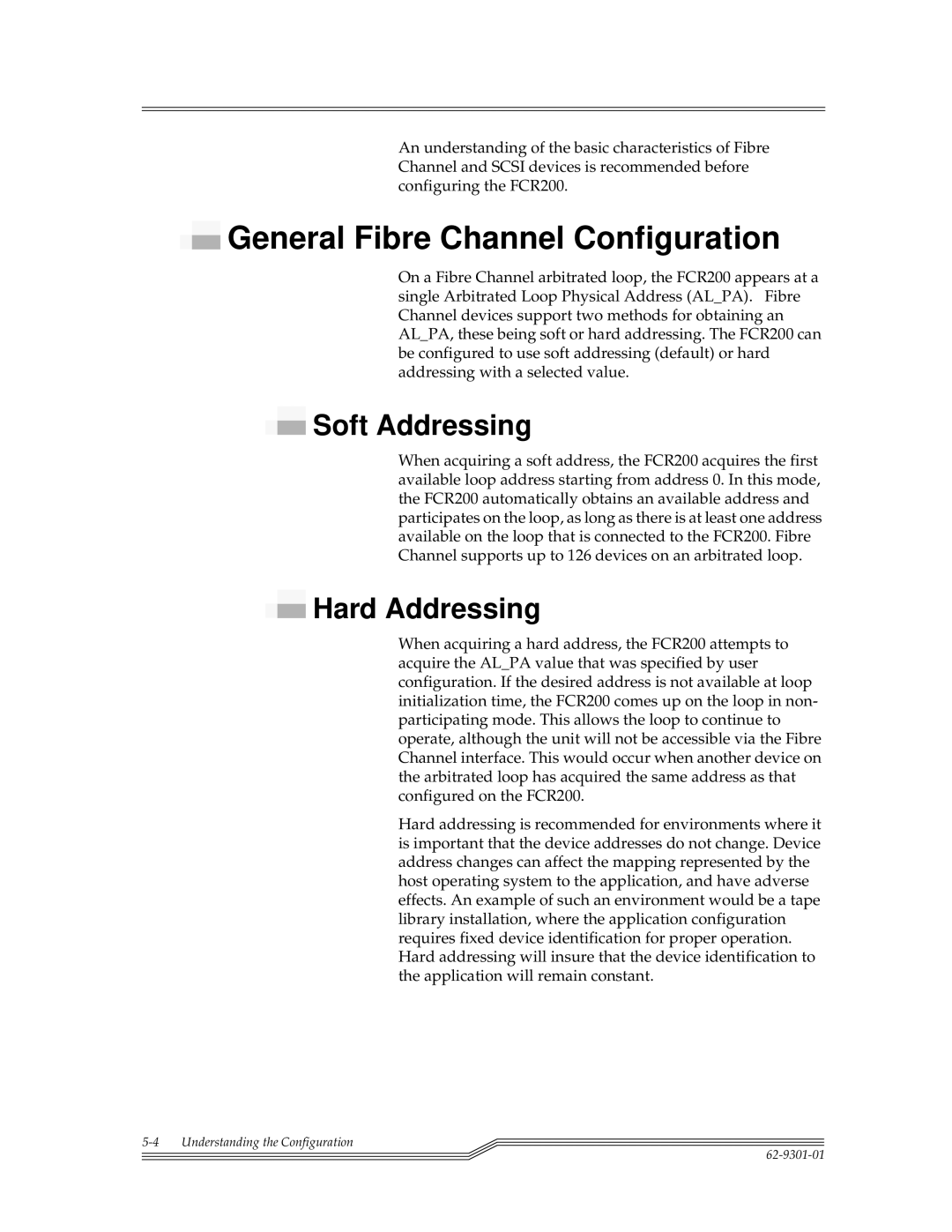
An understanding of the basic characteristics of Fibre Channel and SCSI devices is recommended before configuring the FCR200.
 General Fibre Channel Configuration
General Fibre Channel Configuration
On a Fibre Channel arbitrated loop, the FCR200 appears at a single Arbitrated Loop Physical Address (AL_PA). Fibre Channel devices support two methods for obtaining an AL_PA, these being soft or hard addressing. The FCR200 can be configured to use soft addressing (default) or hard addressing with a selected value.
 Soft Addressing
Soft Addressing
When acquiring a soft address, the FCR200 acquires the first available loop address starting from address 0. In this mode, the FCR200 automatically obtains an available address and participates on the loop, as long as there is at least one address available on the loop that is connected to the FCR200. Fibre Channel supports up to 126 devices on an arbitrated loop.
 Hard Addressing
Hard Addressing
When acquiring a hard address, the FCR200 attempts to acquire the AL_PA value that was specified by user configuration. If the desired address is not available at loop initialization time, the FCR200 comes up on the loop in non- participating mode. This allows the loop to continue to operate, although the unit will not be accessible via the Fibre Channel interface. This would occur when another device on the arbitrated loop has acquired the same address as that configured on the FCR200.
Hard addressing is recommended for environments where it is important that the device addresses do not change. Device address changes can affect the mapping represented by the host operating system to the application, and have adverse effects. An example of such an environment would be a tape library installation, where the application configuration requires fixed device identification for proper operation. Hard addressing will insure that the device identification to the application will remain constant.
